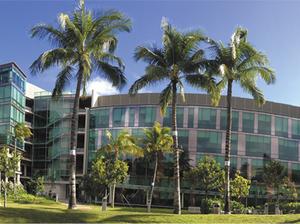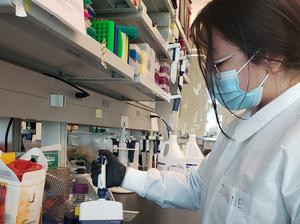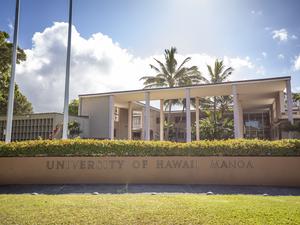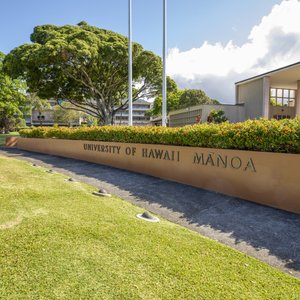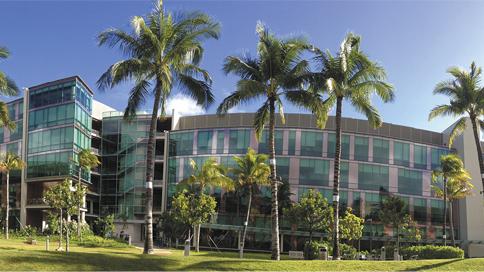
The University of Hawaii Cancer Center has seen significant progression in innovation in the last 50 years, most recently in a study that has identified new ways to detect skin cancer using artificial intelligence, or AI.
The study, “The Potential of Using Artificial Intelligence to Improve Skin Cancer Diagnoses in Hawaii’s Multiethnic Population,” was conducted by UH Cancer Center Researchers Kevin Cassel and John Shepherd, and community health educator Mark Lee Willingham Jr., a sociology PhD student at UH Manoa and lead author.
The research team trained an AI platform – computer programs that use data and algorithms to perform specific tasks – to label a set of unidentified images of pigmented skin lesions that had previously been clinically diagnosed as melanoma or non-melanoma. Images were assessed by a panel of local dermatologists as well as the AI platform. As a result of the combined efforts, accuracy of the diagnoses increased overall.
The study supports the use of AI as a strategy to reduce time and expenses spent on diagnosing skin lesions, along with reducing delays in treatment. One benefit of the tool as it relates to the cancer research field is its precision in detecting various cancers.
The purpose of the study was to aid in the development of a skin lesion classification application that determines how urgently a patient should seek treatment, which can help Hawaii’s rural communities who have limited access to dermatologists.
“Skin cancer strikes at many Hawaii residents because of our active outdoor lifestyles,” Willingham said in a statement. “When we can find ways such as this AI platform to improve [a] diagnosis, it speeds up patient care and saves lives. This study was a collaborative process, and I hope to take part in the future aims of this important and timely research.”
According to officials with the center, skin cancer is the most common type of cancer in the U.S. Within Hawaii’s population, 10,000 individuals are diagnosed with skin cancer each year.
“Our future study hopes to link rural communities and rural general practitioners with AI strategies to aid in diagnosis, with the overarching goal of reducing the multiple consequences of skin cancers,” Cassel said in a statement.
The UH Cancer Center is one of 71 research institutions designated by the National Cancer Institute, and contributes more than $54 million back into Oahu’s economy.
To learn more, visit uhcancercenter.org.
